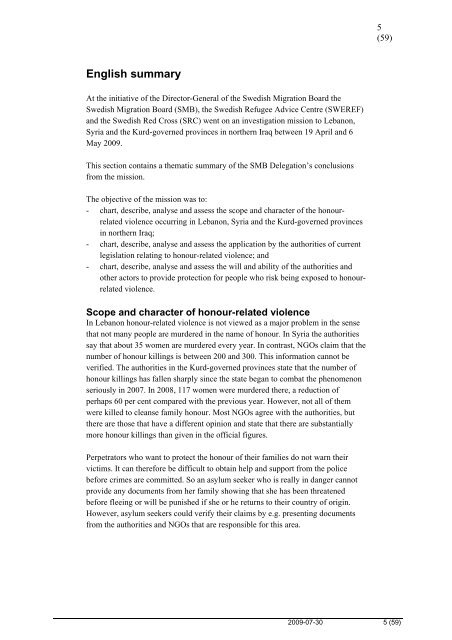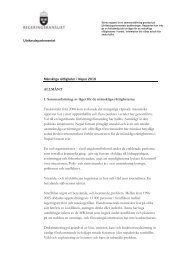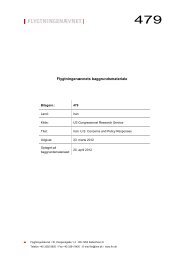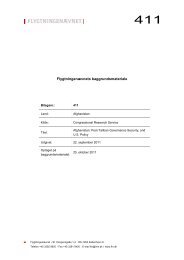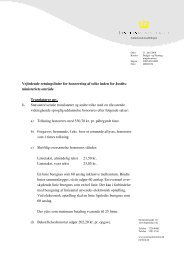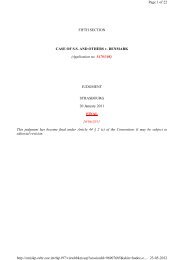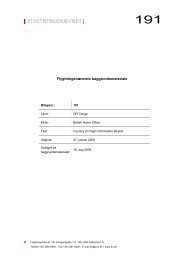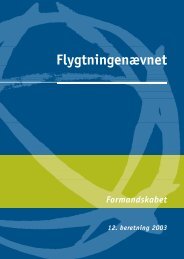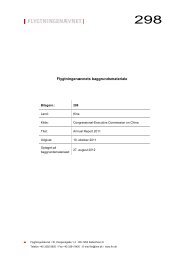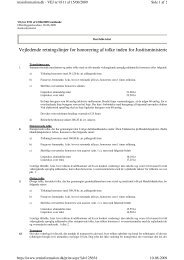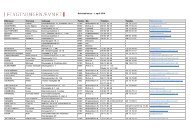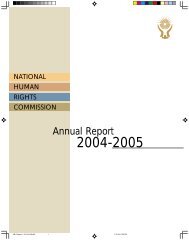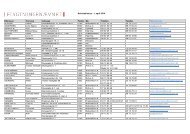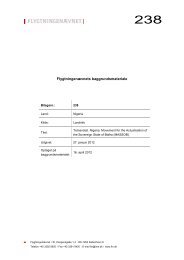Flygtningenævnets baggrundsmateriale
Flygtningenævnets baggrundsmateriale
Flygtningenævnets baggrundsmateriale
You also want an ePaper? Increase the reach of your titles
YUMPU automatically turns print PDFs into web optimized ePapers that Google loves.
English summary<br />
At the initiative of the Director-General of the Swedish Migration Board the<br />
Swedish Migration Board (SMB), the Swedish Refugee Advice Centre (SWEREF)<br />
and the Swedish Red Cross (SRC) went on an investigation mission to Lebanon,<br />
Syria and the Kurd-governed provinces in northern Iraq between 19 April and 6<br />
May 2009.<br />
This section contains a thematic summary of the SMB Delegation’s conclusions<br />
from the mission.<br />
The objective of the mission was to:<br />
- chart, describe, analyse and assess the scope and character of the honourrelated<br />
violence occurring in Lebanon, Syria and the Kurd-governed provinces<br />
in northern Iraq;<br />
- chart, describe, analyse and assess the application by the authorities of current<br />
legislation relating to honour-related violence; and<br />
- chart, describe, analyse and assess the will and ability of the authorities and<br />
other actors to provide protection for people who risk being exposed to honourrelated<br />
violence.<br />
Scope and character of honour-related violence<br />
In Lebanon honour-related violence is not viewed as a major problem in the sense<br />
that not many people are murdered in the name of honour. In Syria the authorities<br />
say that about 35 women are murdered every year. In contrast, NGOs claim that the<br />
number of honour killings is between 200 and 300. This information cannot be<br />
verified. The authorities in the Kurd-governed provinces state that the number of<br />
honour killings has fallen sharply since the state began to combat the phenomenon<br />
seriously in 2007. In 2008, 117 women were murdered there, a reduction of<br />
perhaps 60 per cent compared with the previous year. However, not all of them<br />
were killed to cleanse family honour. Most NGOs agree with the authorities, but<br />
there are those that have a different opinion and state that there are substantially<br />
more honour killings than given in the official figures.<br />
Perpetrators who want to protect the honour of their families do not warn their<br />
victims. It can therefore be difficult to obtain help and support from the police<br />
before crimes are committed. So an asylum seeker who is really in danger cannot<br />
provide any documents from her family showing that she has been threatened<br />
before fleeing or will be punished if she or he returns to their country of origin.<br />
However, asylum seekers could verify their claims by e.g. presenting documents<br />
from the authorities and NGOs that are responsible for this area.<br />
5<br />
(59)<br />
2009-07-30 5 (59)


